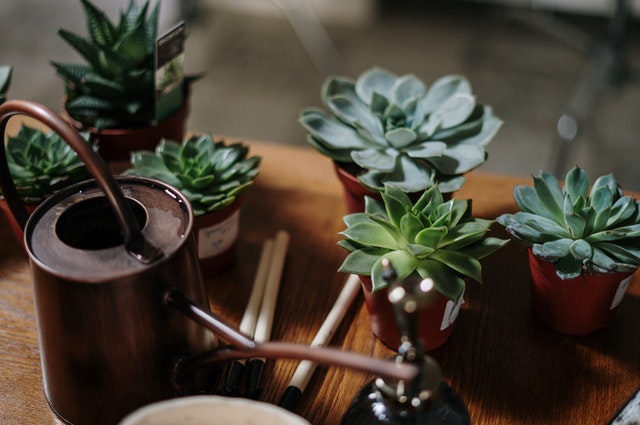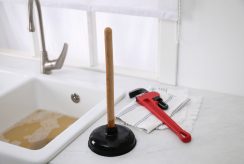If you want to grow healthy plants, you should consider using a fertilizer that is rich in micronutrients and seaweed. Seaweed-based fertilizers like Maxsea contain a good blend of micronutrients. The all-purpose formulation is ideal for common leafy houseplants, which require a high level of nitrogen. Rose growers swear by it, but you should dilute it to a weak solution before applying it to your plants.
Organic
Multipurpose fertilizer blends are ideal for use around the home and are particularly effective for a variety of garden needs. These fertilizers contain a variety of single ingredients in a balanced ratio. Depending on the needs of the plant, these fertilizers can help promote flower production, increase the yield of vegetable and fruit crops, or promote a healthier plant overall. They can be applied by hand, with a watering can, or using a hose-end applicator.
Synthetic fertilizers, by contrast, are of a higher concentration and are formulated to correct a specific deficiency. However, by over-feeding the soil, you will not be giving your plants a leg up and will most likely be polluting the waterways in your area. This is why organic fertilizer blends are the best way to achieve maximum growth. You can also choose to use a blend that contains a mix of synthetic and organic fertilizers.
Organic fertilizers are created from the remains of living organisms. Some examples of these include cow manure, cottonseed meal, and fish emulsion. These substances are broken down by microorganisms in the soil and provide nutrients to the plants as they decompose. Additionally, they help to improve the health of the soil. They are also great for improving the soil’s structure and attracting beneficial microbes. If you’re ever trying to find an organic fertilizer, you might want to check fertilizer blends by Seacliff Organics.
Although synthetic fertilizers are faster acting than organic ones, they still provide a plant’s soil with nutrients. They are useful for plants in times of severe nutrient deficiencies, but they can also cause a plant to burn. Unlike organic fertilizers, synthetic fertilizers should not be used for seedlings. If you have a large vegetable or fruit garden, it’s best to avoid using chicken manure.
Specific plant fertilizers are especially useful for gardeners. They feature N-P-K ratios and include other elements that a particular plant needs. Most are named for the plant they’re meant for. Using a fertilizer formulated for a citrus tree, for example, will increase the likelihood that your fruit will bear large blossoms. These blends can also help citrus trees and other acid-loving plants thrive.

Synthetic
A variety of fertilizer products are available on the market today. Some blends contain primary and secondary nutrients while others do not provide a complete spectrum of micronutrients. Chemical fertilizers also destroy beneficial microbes, thereby creating an unsuitable environment for plants. Organic matter, on the other hand, enhances soil structure and improves the soil’s water-holding capacity and pH-balancing capabilities.
Most organic fertilizers have a high concentration of nitrogen, but they also contain additional nutrients like phosphorus and potassium. Phosphorus is a macronutrient that plants require. Potassium is essential for photosynthesis and preventing diseases. Potassium-deficient plants may show stunted leaves or be extra sensitive to drought. But most soils already contain potassium. Organic fertilizers also contain trace minerals, such as calcium, iron, and manganese, which improve overall plant vigor.
Organic fertilizers are composed of natural resources such as compost, manure, cottonseed meal, or fish emulsion. They contain fewer primary nutrients than synthetic fertilizers, but they do provide consistent feeding to your plants. Organic fertilizers tend to be more expensive, but they don’t deplete the soil’s pH level. Organic fertilizers also contain micronutrients, which are not present in synthetic fertilizers.
Some fertilizers are specifically formulated for certain plants. They feature a high concentration of N-P-K, and other elements important to the specific plant. These are often named after the plant they are meant for. Some of them are acid-loving or citrus-loving. If you are unsure about which type of fertilizer is best for your particular plants, a soil test will show you which types will benefit the most.
When choosing a fertilizer, make sure to check the label for details on the amount of each nutrient. Plants can only absorb nutrients in ionic form. They are elements on the periodic table that have positive or negative charges depending on their number of electrons. These ions are also known as anions and cations, and they are attracted to each other. If the ions aren’t mixed together, the plant will not receive the necessary nutrients.
Zero Nitrogen
Many stores have stopped carrying zero nitrogen fertilizer blends for plants. These mixes have become rare and difficult to find. Some fertilizer manufacturers now make organic matter in granular form that releases slowly, so that granular pieces take longer to leach from the soil. Since nitrogen is more soluble than most macronutrients, it leaches from the soil easily. As a result, these blends are beneficial for a variety of plants, not just turf grass.
Group fertilizers contain a balance of micro-nutrients and macro-nutrients. Some blends contain equal amounts of each macro and micronutrient. Dr. Q’s Plant Tonic is one such blend. It is an excellent complement to other fertilizers. While it is formulated with zero nitrogen, it also contains all the micronutrients needed by plants and turf. And because it contains iron, it is beneficial to apply it to plants in the spring, summer, and fall.
N-P-K-ratios are another way to determine whether a zero nitrogen blend is appropriate for your plants. These blends are labeled as a percentage of nitrogen, phosphorus, and potassium. Most fertilizers contain at least one of these ingredients. Zero nitrogen fertilizer blends for plants contain as much or as little as 4% phosphorus and 2% potassium. If you want a more balanced blend, choose one with a higher number.
Zero nitrogen fertilizer is beneficial for first-year plants. Using a blend of zero nitrogen fertilizer in the spring is beneficial to plant buds. A zero nitrogen fertilizer is also beneficial for plants that are preparing for the winter. It provides adequate nutrition for the plant during the colder months without harming the environment. It improves the plant’s health and root strength. You’ll be happy with the results!
If you’re concerned about the cost of a zero nitrogen fertilizer blend, you can try organic ones. These fertilizers have slow-release nitrogen and are great for clay and thick soil. However, make sure to consult your local grower about the benefits of these organic methods before buying. You’ll also want to consider whether your chosen zero nitrogen fertilizer blend is available in your area. If you’re unsure, you can always make your own fertilizer blend and test it before you apply it to your plants.
Worm Castings
Worm castings have a consistency similar to fine coffee grounds and smell like earth. Worm castings are slow-release fertilizing solutions derived from worms’ digestive tract. They are packed with beneficial microorganisms and have a unique microbial activity. If you are looking to add worm castings to your plant-growing mix, you should check out Dirty Bil’s worm castings.
If you are not sure how to apply worm castings to your plant’s soil, you can use a worm tea instead. Worm castings can be added to the soil when making compost tea. Worm tea contains a high concentration of beneficial bacteria and is great for outdoor plants, too. You can add it every few weeks for optimal results. Worm castings are an excellent source of organic nutrients, and they are a natural way to grow healthy plants.
Worm castings are rich in micronutrients. They contain approximately 60-odd micronutrients. They also increase the cation exchange capacity of the soil, which measures how fertile the soil is. Worm castings help plants to absorb nutrients and are easy to tolerate by plants. Worm castings are also known to reduce damping-off and reduce fungal diseases. You should look for fertilizers that use worm castings in their blends to avoid the risk of having dry soil.
You can use worm castings for your plants in the ground, in raised beds, or in pots. They will improve the soil balance and will give your plants the fertilizer-like boost they need. Worm castings are a great addition to any plant fertilizer mix, so don’t be afraid to experiment and see how you do. You’ll be amazed at how much you can get for your money.
Mixing worm castings with soil before planting your plants will help them grow faster. They can be blended with compost and other desired components. Apply the mixture to the soil surface before planting. It’s best to add it to the soil surface before planting the plants. Make sure that you water it daily to ensure the worm castings are evenly distributed throughout the soil. Then, wait a few days before planting your plants. After adding the worm castings to the soil, water it again to flush out the nitrogen.





